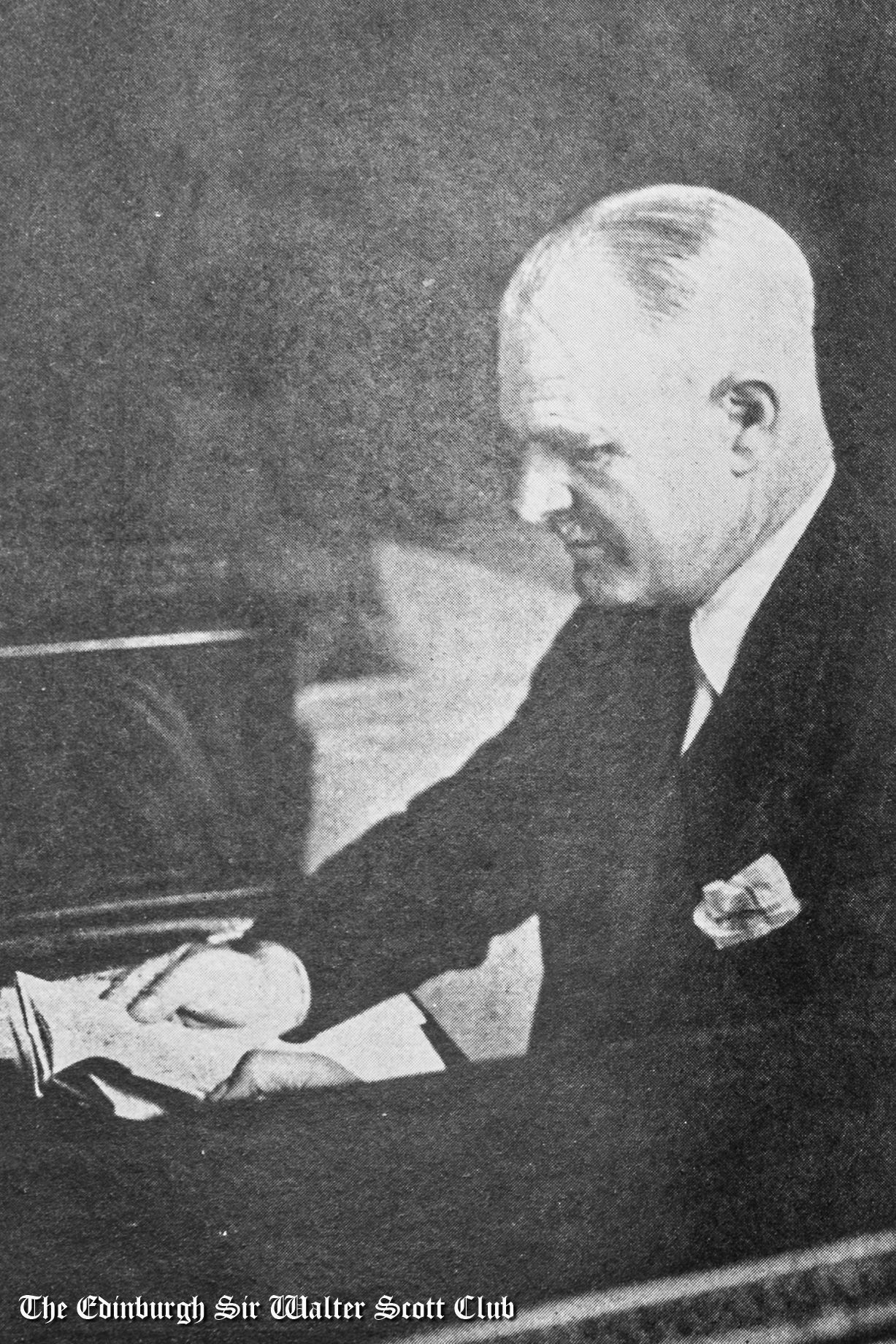1948
Our President for 1948/49 was:
Field Marshal The Right Hon. Earl Wavell of Cyrenaica and Winchester
He proposed the Toast to Sir Walter at our 41st Annual Dinner on Friday 7th January 1949 in The North British Station Hotel, Edinburgh
Download the [transcript] or read the [bulletin]
Summary of the Speech:
Field Marshal The Right Hon. Earl Wavell gave a powerful and personal tribute to Sir Walter Scott, focusing not on Scott as a novelist but as a poet and a man of character, whose legacy held deep relevance for the post-war world.
Wavell began with a vivid childhood memory of discovering Marmion, later echoed in a striking moment during WWII when Churchill recited the same lines before a meeting with Stalin. This memory underscored Scott's enduring emotional and inspirational power.
Wavell acknowledged that while Scott may not rank among the greatest poets in the metaphysical or philosophical sense (citing Wordsworth’s criticism), his poetry was stirring, accessible, and full of adventurous spirit, especially appealing to soldiers, youth, and active-minded individuals. Wavell lamented the decline of such rousing poetry in modern times, contrasting Scott’s clarity and vigour with the obscure and often joyless poetry of the mid-20th century.
He read several stirring excerpts from Scott’s work—from Marmion, The Lord of the Isles, and others—arguing that such poetry still has the power to uplift and galvanise. He criticised contemporary poets for producing work that lacked the directness and inspiration needed in times of struggle.
Turning to Scott’s character, Wavell praised his courage, truthfulness, work ethic, sense of duty, and humanity. He highlighted Scott's nobility during the financial collapse of 1826, noting how Scott bore his misfortunes with stoicism, declined bailouts, and worked harder than ever to repay debts—not for himself, but for others. Wavell suggested that this example of resilience and leadership could inspire the nation in its own post-war challenges.
Interesting and Noteworthy Points
- Churchill and Scott: Wavell described a memorable moment during WWII when Churchill recited lines from Marmion before his meeting with Stalin—linking the literary and political spheres in a remarkable way.
- Scott as the Poet of Action: Wavell viewed Scott’s poetry as ideally suited for bold and adventurous youth, suggesting it should be used to inspire national resolve and moral strength, particularly in peacetime recovery.
- Cultural Decline in Poetry: He was sharply critical of modern poetry's obscurity, lack of vigour, and failure to resonate with ordinary people—contrasting it with Scott’s clear and rousing verse.
- Moral Leadership: Scott’s response to financial ruin is framed as a model of ethical responsibility, personal honour, and national character—Wavell implicitly urges post-war Britain to emulate it.
- Military Metaphor: As a soldier, Wavell drew a parallel between Scott's poetry as a "single-seater fighter" training ground before commanding the "armies" of novel writing—an apt and memorable image.
Download the [transcript] or read the [bulletin]

Subsidiary Toasts*
The toasts of "The King" and "The Royal Family" were duly honoured.
Thereafter The Earl of Selkirk proposed the toast of "The Imperial Forces," to which Air Commodore E. S. Burns replied.
"The City of Edinburgh" was proposed by Mr John Cameron, K.C., and replied to by Treasurer Miller on behalf of the Lord Provost.
The health of the Chairman was proposed by Mr W. R. Milligan, K.C.
Music was provided during the evening by Mr Nicol Easton, Baritone, and Mrs Easton at the piano.
*It is regretted that it has proved impracticable to reproduce the speeches other than that of the Chairman.


